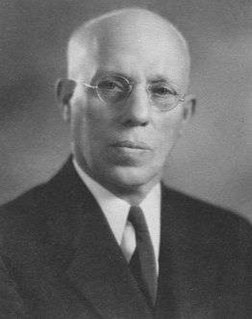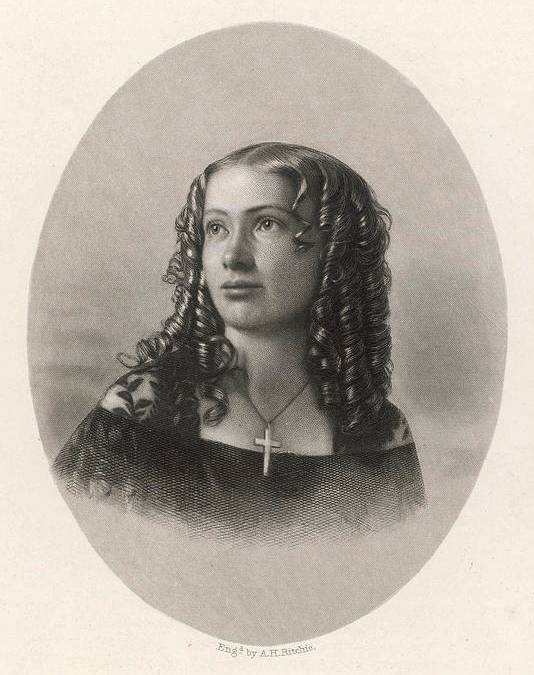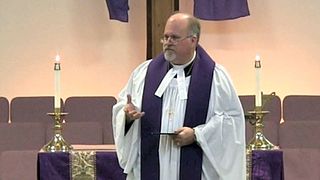
James Springer White, also known as Elder White, was a co-founder of the Seventh-day Adventist Church and husband of Ellen G. White. In 1849 he started the first Sabbatarian Adventist periodical entitled "The Present Truth", in 1855 he relocated the fledgling center of the movement to Battle Creek, Michigan, and in 1863 played a pivotal role in the formal organization of the denomination. He later played a major role in the development of the Adventist educational structure beginning in 1874 with the formation of Battle Creek College.

Emma Hardinge Britten was an English advocate for the early Modern Spiritualist Movement. Much of her life and work was recorded and published in her speeches and writing on the spiritual movement, and an incomplete autobiography was edited by her sister. She is remembered as a writer, orator, and practitioner of the movement. Her books, Modern American Spiritualism (1870) and Nineteenth Century Miracles (1884), are detailed accounts of the history of early modern spiritualism movement in America.

The Seventh-day Adventist Church had its roots in the Millerite movement of the 1830s to the 1840s, during the period of the Second Great Awakening, and was officially founded in 1863. Prominent figures in the early church included Hiram Edson, James Springer White, Joseph Bates, and J. N. Andrews. Over the ensuing decades the church expanded from its original base in New England to become an international organization. Significant developments such the reviews initiated by evangelicals Donald Barnhouse and Walter Martin, in the 20th century led to its recognition as a Christian denomination.

The College of Psychic Studies is a non-profit organisation based in South Kensington, London. It is dedicated to the study of psychic and spiritualist phenomena.

Uriah Smith was a Seventh-day Adventist author, minister, educator, and theologian who is best known as the longest serving editor of the Review and Herald for over 50 years.

Dwight K. Nelson is a Seventh-day Adventist evangelist and author.

The 1888 Minneapolis General Conference Session was a meeting of the General Conference of Seventh-day Adventists held in Minneapolis, Minnesota, in October 1888. It is regarded as a landmark event in the history of the Seventh-day Adventist Church. Key participants were Alonzo T. Jones and Ellet J. Waggoner, who presented a message on justification supported by Ellen G. White, but resisted by leaders such as G. I. Butler, Uriah Smith and others. The session discussed crucial theological issues such as the meaning of "righteousness by faith", the nature of the Godhead, the relationship between law and grace, and Justification and its relationship to Sanctification.

Milian Lauritz Andreasen, was a Seventh-day Adventist theologian, pastor and author.

George Ide Butler was a Seventh-day Adventist minister, administrator, and author. Originally from Vermont, United States, Butler's parents were closely involved in the beginnings of the Seventh-day Adventist Church, but George expressed leanings to infidelity. In 1853 his family moved to Iowa where he was converted at age 22 and baptized by J. N. Andrews. He then settled on a farm and taught school during the winter months. On March 10, 1859 he married Lentha Lockwood (1826-1901). They afterward settled near Waukon, Iowa, where Butler resumed teaching.

Albert Victor Olson (1884–1963) was a Seventh-day Adventist minister and administrator. He was born May 26, 1884, in Kingston, Minnesota.

William Stainton Moses (1839–1892) was an English cleric and spiritualist medium.

The National Spiritualist Association of Churches (NSAC) is one of the oldest and largest of the national Spiritualist church organizations in the United States. The NSAC was formed as the National Spiritualist Association of the United States of America (NSA) in September 1893, during a three-day convention in Chicago, Illinois. Although American Spiritualists had previously tended to resist institutional or denominational organization, early NSA leaders hoped organization would help promote the truths of the religion both spiritually and practically. Organization could help non-Spiritualists distinguish genuine mediumship from the rapidly proliferating varieties of fraudulent mediumship, increase communication among Spiritualists, prevent the legal prosecution of spirit mediums under fortune telling and medical licensing laws, and counterattacks by "orthodox" ministers in the press. To these reasons, early leaders added the material support of spirit mediums and healers, just as other religious groups provided for the support of their clergy.

Morris L. Venden was a prominent Seventh-day Adventist preacher, teacher, and author, who was also a member of the Voice of Prophecy team as an associate speaker.

Seventh-day Adventists believe that Ellen G. White, one of the church's co-founders, was a prophetess, understood today as an expression of the New Testament spiritual gift of prophecy.

Edward Earl Cleveland commonly known as E. E. Cleveland was an author, civil rights advocate and evangelist of the Seventh-day Adventist Church.

Ted N. C. Wilson is the current President of the General Conference of the Seventh-day Adventist Church as of Nov 2018.

The Seventh-day Adventist Church pioneers were members of Seventh-day Adventist Church, part of the group of Millerites, who came together after the Great Disappointment across the United States and formed the Seventh-day Adventist Church. In 1860, the pioneers of the fledgling movement settled on the name, Seventh-day Adventist, representative of the church's distinguishing beliefs. Three years later, on May 21, 1863, the General Conference of Seventh-day Adventists was formed and the movement became an official organization.

The Seventh-day Adventist Church in Canada (SDACC) is organized as a constituent entity of the North American Division of Seventh-day Adventists (SDA).

John Page Hopps was a Unitarian minister and spiritualist.



















